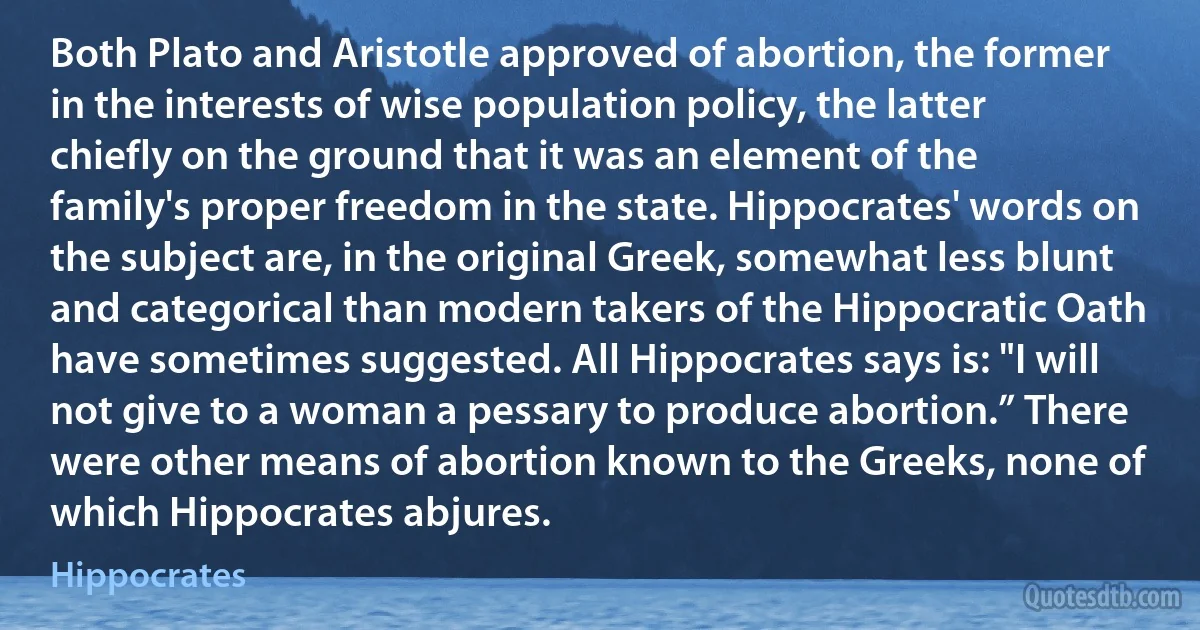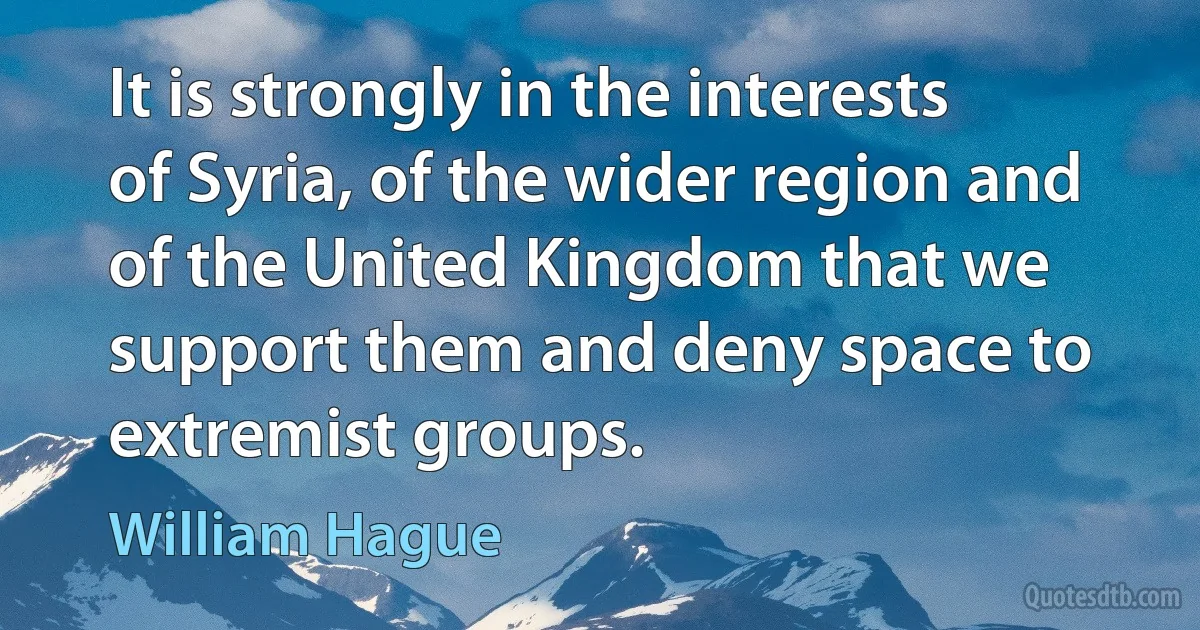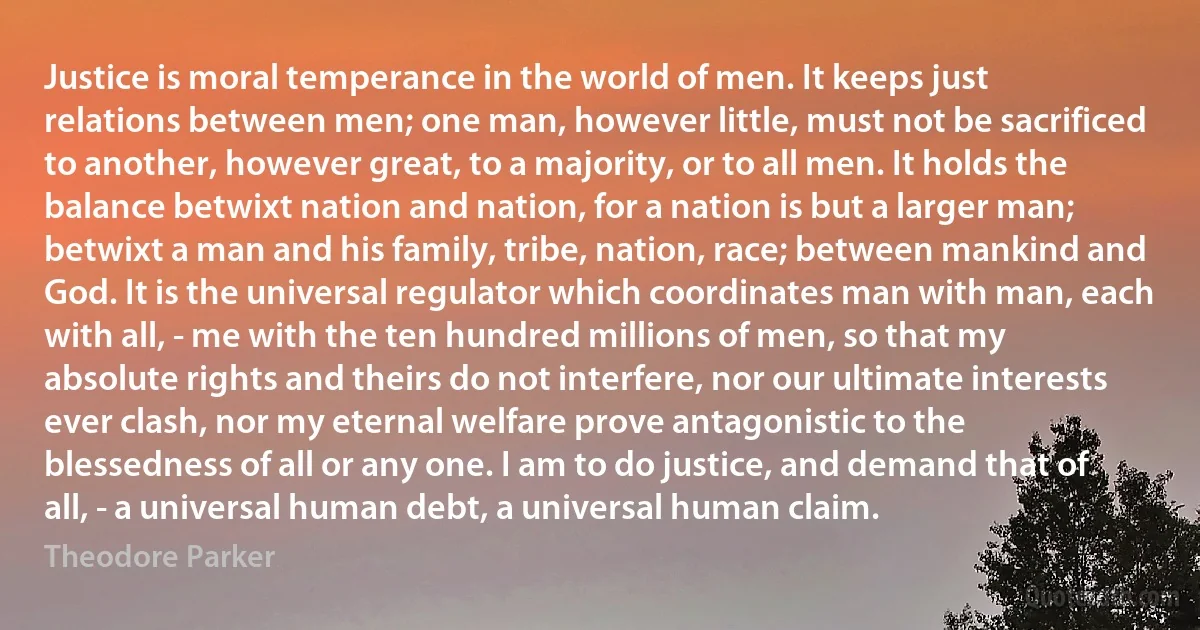Interests Quotes - page 83
A genuinely democratic society requires a secular ethos: one that does not equate morality with religion, stigmatize atheists, defer to religious interests and aims over others or make religious belief an informal qualification for public office. Of course, secularism in the latter sense is not mandated by the First Amendment. It's a matter of sensibility, not law.

Ellen Willis
As a guide to engineering ethics, I should like to commend to you a liberal adaptation of the injunction contained in the oath of Hippocrates that the professional man do nothing that will harm his client. Since engineering is a profession which affects the material basis of everyone's life, there is almost always an unconsulted third party involved in any contact between the engineer and those who employ him - and that is the country, the people as a whole. These, too, are the engineer's clients, albeit involuntarily. Engineering ethics ought therefore to safeguard their interests most carefully. Knowing more about the public effects his work will have, the engineer ought to consider himself an "officer of the court” and keep the general interest always in mind.

Hyman G. Rickover
The "national interest" is not a geographical term, except for fairly prosaic matters like trade and environmental regulation. A smaller nation might appropriately feel that its national interest begins and ends at its borders, so that its foreign policy is almost always in a defensive mode. A larger nation has more extensive interests. And large nations, whose identity is ideological, like the Soviet Union of yesteryear and the United States of today, inevitably have ideological interests in addition to more material concerns. Barring extraordinary events, the United States will always feel obliged to defend, if possible, a democratic nation under attack from nondemocratic forces, external or internal. That is why it was in our national interest to come to the defense of France and Britain in World War II. That is why we feel it necessary to defend Israel today, when its survival is threatened. No complicated geopolitical calculations of national interest are necessary.

Irving Kristol
Obviously, if there is reason to suspect that actual crimes have been committed... then it's not just permissible but vital that the FBI investigate such allegations... But the FBI investigation... clearly based, at least in part, on the FBI's disagreements with Trump's foreign policy views and the agency's assessment that such policies fail to safeguard "U.S. interests” as the FBI defines them. The NYT notes that among the events that prompted the investigation were that Trump "refused to criticize Russia on the campaign trail...”.

Glenn Greenwald
Rembrandt was on a continuous journey of discovery; not on a production line of consistent art objects for the market-place, as the scholars hope to recreate him. His wide ranging methods and interests produced very wide ranging quality. He did not tidy away his less successful works, nor should the scholars do so. He has left us the fullest record of his explorations of any artist and naturally his work includes many comparative failures. But astonishingly, even some of his greatest drawings have been mis-attributed to minor students.

Rembrandt
Everyone engaged in creative work is subject to persecution by the odious comparison. Odious comparisons dog the footsteps of all creation wherever the poetic principle is involved because the inferior mind learns only by comparisons; comparisons, usually equivocal, made by selfish interests each for the other. The the superior mind learns by analyses: the study of Nature.

Frank Lloyd Wright
Power is the sine qua non strategic objective of the revolutionary forces, and everything must be subordinated to this basic endeavor. But the taking of power, in this world polarized by two forces of extreme disparity and absolutely incompatible in interests, cannot be limited to the boundaries of a single geographic or social unit. The seizure of power is a worldwide objective of the revolutionary forces. To conquer the future is the strategic element of revolution; freezing the present is the counterstrategy motivating the forces of world reaction today, for they are on the defensive.

Che Guevara
Every great deed of which history tells us, every mighty passion which art can represent, every picture of manners, of civic arrangements, of the culture of peoples of distant lands or of remote times, seizes and interests us, even if there is no exact scientific connection among them. We continually find points of contact and comparison in our own conceptions and feelings; we get to know the hidden capacities and desires of the mind, which in the ordinary peaceful course of civilised life remain unawakened.
It is not to be denied that, in the natural sciences, this kind of interest is wanting. Each individual fact, taken by itself, can indeed arouse our curiosity or our astonishment, or be useful to us in its practical applications. But intellectual satisfaction we obtain only from a connection of the whole, just from its conformity with law.

Hermann von Helmholtz
Which is Better: the Latke or the Hamantash?” is not a valid question, even though this has now been debated for 50 years.
* The question does not exhibit the necessary property of universality.
* It is culturally biased, implies gender specificity, exhibits geographical chauvinism and appeals to special interests.
* It is not value-free.
This question would not pass scrutiny on an SAT test, since it unfairly favors one ethnic and gender group over another: e.g., it favors the NY and Brooklyn establishment over the Midwest Rust Belt, and pits female latke workers against male hamantash bakers. In short, it is Politically Incorrect. Physics does not ask which is better: the proton or neutron, baryon or lepton, helium or neon, the conductor or insulator. These are simply properties of nature. Rather, physics asks: "Why?” or "Which is more important or more fundamental?” or "Who published it first?

Isaac Abella
As a student of Franz von Stück he Kandinsky still continued for a while to paint quite naturalistically. He admitted to me that he had always loved color, even as a child, far more than subject matter. Form and color were his main interests. To me he often remarked that 'objects disturb me'. But he could paint portraits, too.

Wassily Kandinsky
... nothing has for a long time afforded us so much pleasure, as the rich promise of dramatic excellence unfolded in this production of our Noble Exile. Without question, no such tragedy as Marino Faliero has appeared in English, since the day when Otway also was inspired to his masterpiece by the interests of a Venetian story and a Venetian conspiracy.
The story of which Lord Byron has possessed himself is, we think, by far the finer of the two,-and we say possessed, because we believe he has adhered almost to the letter of the transactions as they really took place.

John Wilson (Scottish writer)
The Intercept conducted an exhaustive analysis of Biden's political career with a focus on his positions on dozens of U.S. wars and military campaigns, CIA covert actions, and abuses of power; his views on whistleblowers and leakers; and his shifting stance on the often contentious relationship between the executive and legislative branches over war powers.
The picture that emerges is of a man who is dedicated to the U.S. as an empire, who believes that preserving U.S. national interests and "prestige” on the global stage outweigh considerations of morality or even at times the deaths of innocent people. It also reveals a politician who consistently claims to hold bedrock principles but who often strays from those positions in support of a partisan agenda or because he wants a policy adopted regardless of the hypocrisy or contradictions. Nowhere is this dynamic more pronounced than on U.S. wars.

Joe Biden
It seems as though he...has more of an interest, and more of a cultural capacity to reach out across the aisle in America, and to the world as a whole. As a wise man said once, you campaign in poetry and govern in prose...let's now see if he can deliver. Though I think he will soon find out that the vested interests of Washington are too stubborn for a relatively inexperienced politician such as himself to navigate. (Speaking about new U.S. President Barack Obama)

Munir Butt
So far as the Labour party is concerned, The Open Society is almost entirely irrelevant. The Labour party from the Webbs to Attlee, though it believed in state-power as the antidote to inequality and competition and misunderstood Stalin's Russia, was neither intellectually Stalinist nor intellectually totalitarian. Its defects were then and are now more domestic and homely – the minority-mindedness and nonconformist conscience which Keynes discerned in Kingsley Martin, the editor of the New Statesman, the conviction of moral impregnability which makes it intolerant, evasive and querulous when policy conflicts with principle or goodwill stubs its toe on interests, and the sympathy for fads and crankcauses which it inherited from the Liberal party and continues to display in the imprisonment of General Pinochet, the campaign against fox hunting and the nonsense involved in Mr Cook's "ethical foreign policy".

Maurice Cowling
We remain the most prosperous, powerful nation on Earth. Our minds are no less inventive, our goods and services no less needed than they were last week or last month or last year. Our capacity remains undiminished. But our time of standing pat, of protecting narrow interests and putting off unpleasant decisions - that time has surely passed. Starting today, we must pick ourselves up, dust ourselves off, and begin again the work of remaking America.

Barack Obama
I realize that tax reform and entitlement reform will not be easy. The politics will be hard for both sides. None of us will get 100 percent of what we want. But the alternative will cost us jobs, hurt our economy, visit hardship on millions of hardworking Americans. So let's set party interests aside and work to pass a budget that replaces reckless cuts with smart savings and wise investments in our future. And let's do it without the brinksmanship that stresses consumers and scares off investors. The greatest nation on Earth cannot keep conducting its business by drifting from one manufactured crisis to the next. We can't do it. Let's agree right here, right now to keep the people's government open, and pay our bills on time, and always uphold the full faith and credit of the United States of America. The American people have worked too hard, for too long, rebuilding from one crisis to see their elected officials cause another.

Barack Obama
I'm under no illusion about the continued barriers to freedom that remain for ordinary Cubans. The United States believes that no Cubans should face harassment or arrest or beatings simply because they're exercising a universal right to have their voices heard, and we will continue to support civil society there. While Cuba has made reforms to gradually open up its economy, we continue to believe that Cuban workers should be free to form unions, just as their citizens should be free to participate in the political process.
Moreover, given Cuba's history, I expect it will continue to pursue foreign policies that will at times be sharply at odds with American interests. I do not expect the changes I am announcing today to bring about a transformation of Cuban society overnight. But I am convinced that through a policy of engagement, we can more effectively stand up for our values and help the Cuban people help themselves as they move into the 21st century.

Barack Obama



